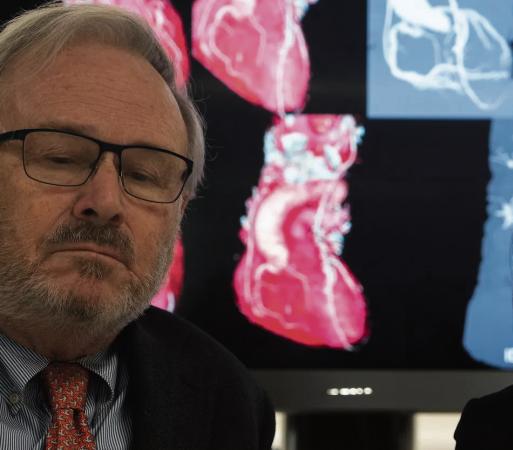-
-
Author: Our Reporter
~ 3 minutes read
A new approach to heart bypass surgery – using non-invasive methods — has been successfully tested on patients for the first time in a clinical trial coordinated by a research team at University of Galway.
Described as “a gamechanger”, their study has seen heart surgeons plan and carry out coronary artery bypass grafting (CABG), based solely on non-invasive cardiac-CT scan images, with HeartFlow’s AI-powered blood flow analysis of the patient’s coronary arteries.
The key findings of this first-in-human study, overseen by the University’s CORRIB Research Centre for Advanced Imaging and Core Lab, is the 99.1% feasibility, which means that heart bypass surgery without undergoing invasive diagnostic catheterisation is feasible and safe.
The trial had similar outcomes to recent surgical groups of patients who underwent conventional invasive angiogram investigations, which involves inserting a catheter through an artery in the wrist or groin to access diseased arteries and using dye to visualise blockages.
Trial chairman Professor Patrick W Serruys, Established Professor of Interventional Medicine and Innovation at University of Galway, said: “The results of this trial have the potential to simplify the planning for patients undergoing heart bypass surgery. The trial and the central role played by the CORRIB Core Lab puts University of Galway on the frontline of cardiovascular diagnosis, planning and treatment of coronary artery disease.”
The study was carried out in leading cardiac care hospitals in Europe and the US and involved 114 patients who had severe blockages in multiple vessels, limiting blood flow to their heart.
During the trial, the analysis of high resolution cardiovascular imagery and data was carried out by the CORRIB Core Lab team and shared by telemedicine with surgeons in trial hospitals.
The HeartFlowTM Analysis, which provides AI-powered blood flow analysis called Fractional Flow Reserve derived from CT (FFRCT), quantifies how poorly the narrowed vessel provides blood to the heart muscle, assisted the surgeon in clearly identifying which of the patient’s vessels should receive a bypass graft.
Professor Serruys added: “The potential for surgeons to address even the most intricate cases of coronary artery disease using only a non-invasive CT scan, and FFRCT represents a monumental shift in healthcare.”
Dr Yoshi Onuma, Professor of Interventional Cardiology at University of Galway and the medical director of CORRIB Research Centre, said: “Exploring the potential for minimising diagnostic catheterisation procedures is important for several reasons- a catheterisation procedure is invasive and it is unpleasant for the patient. It is also costly for the health service. While there is a minimal risk associated with the procedure, it is not entirely risk free.
“CT scan analysis, FFRCT, and guidance from the team in Galway is a world first in bypass surgery. It may become a game-changer, altering the traditional relationship between GP, radiologist, cardiologist and cardio-thoracic surgeon for the benefit of the patient.”
Professor Fidelma Dunne, Director of the Institute for Clinical Trials at University of Galway, said: “The outcomes of this inaugural human trial are highly promising, prompting further exploration of the advantages offered by this non-invasive methodology through an extensive randomised trial. At the Institute for Clinical Trials we are committed to conducting high-impact trials that have the potential to revolutionise patient care globally.”
The pioneering research of the CORRIB Core Lab at University of Galway into cardiovascular diagnosis and coronary artery disease will be further investigated in a large scale randomised trial. The research team is planning it will involve more than 2,500 patients from 80 hospitals across Europe.
The trial was sponsored by University of Galway and funded by GE HealthCare (Chicago, USA) and HeartFlow, Inc. (Redwood City, California, USA).
Pictured: Trial chairman: Professor Patrick W Serruys.
For more, read this week’s Connacht Tribune:
Connacht Tribune Digital Edition App
Download the Connacht Tribune Digital Edition App to access to Galway’s best-selling newspaper. Click HERE to download it for iPhone and iPad from Apple’s App Store, or HERE to get the Android Version from Google Play.
Or purchase the Digital Edition for PC, Mac or Laptop from Pagesuite HERE.
Get the Connacht Tribune Live app
The Connacht Tribune Live app is the home of everything that is happening in Galway City and county. It’s completely FREE and features all the latest news, sport and information on what’s on in your area. Click HERE to download it for iPhone and iPad from Apple’s App Store, or HERE to get the Android Version from Google Play.
More like this:
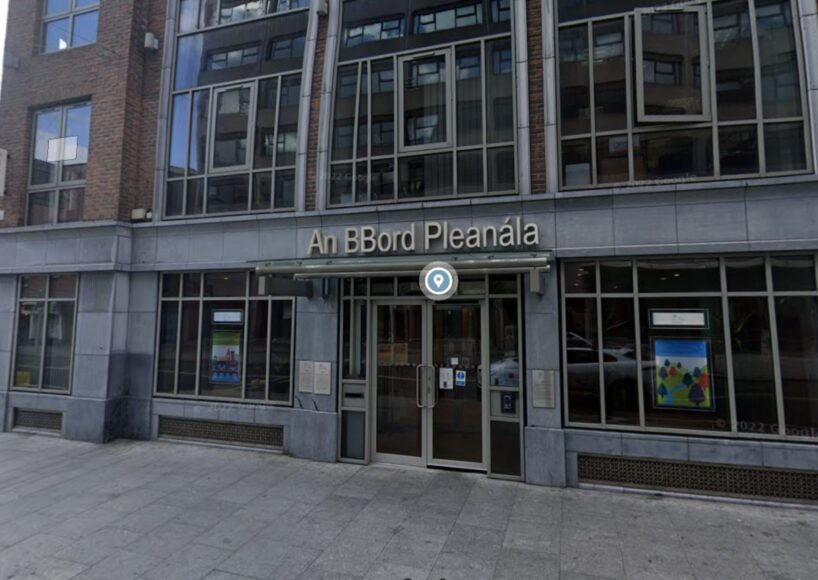
An Bord Pleanála upholds permission for 33 meter high mobile mast in Cregmore
An Bord Pleanála has upheld permission for the construction of a 33 metres high mobile mast in Cr...
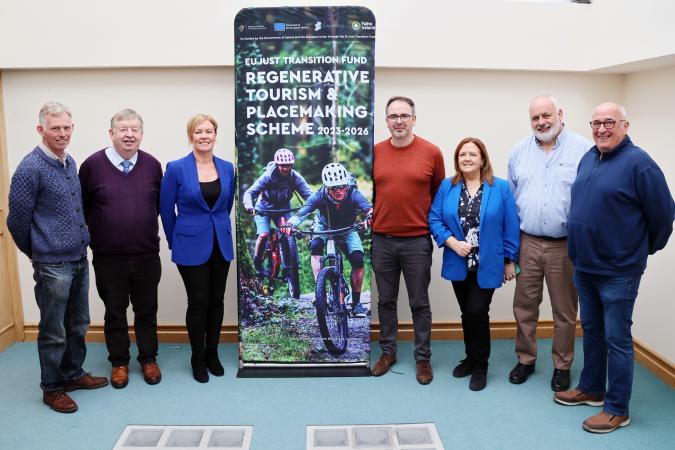
East Galway projects to benefit from EU Just Transition Fund
New funding opportunities for community and tourism led community groups and SMEs across Ballinas...
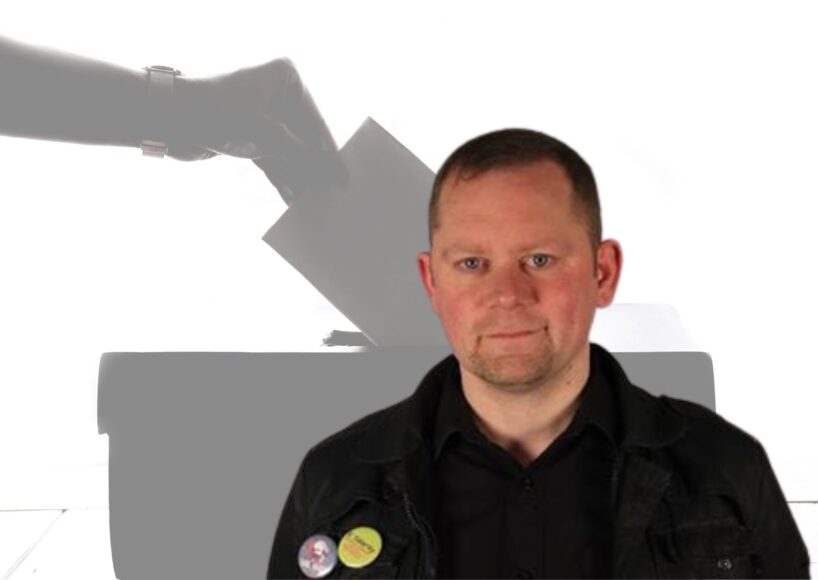
Solidarity party select election candidate for Galway City East
The Solidarity party has selected a candidate to run in the local elections for Galway City East....
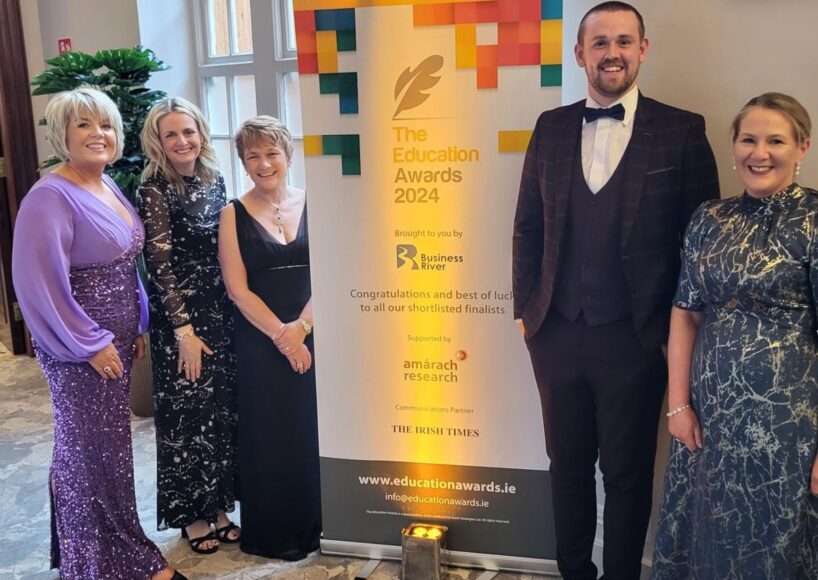
ATU wins best research project at Education Awards
A team from Atlantic Technological University has secured the Best Research Project at the 2024 E...

Owner of Dunmore home interrupts balaclava wearing intruders
Tuam Gardaí are investigating a burglary in the Dunmore area after the owner returned to find int...
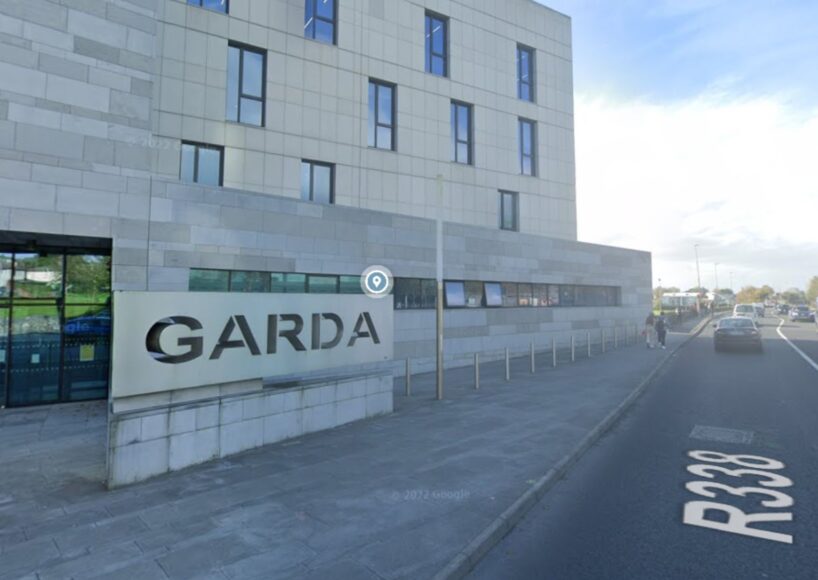
Egging of car in Murrough damages vehicle
Gardai are investigating criminal damage done to a car parked in Murrough in the city by egging t...
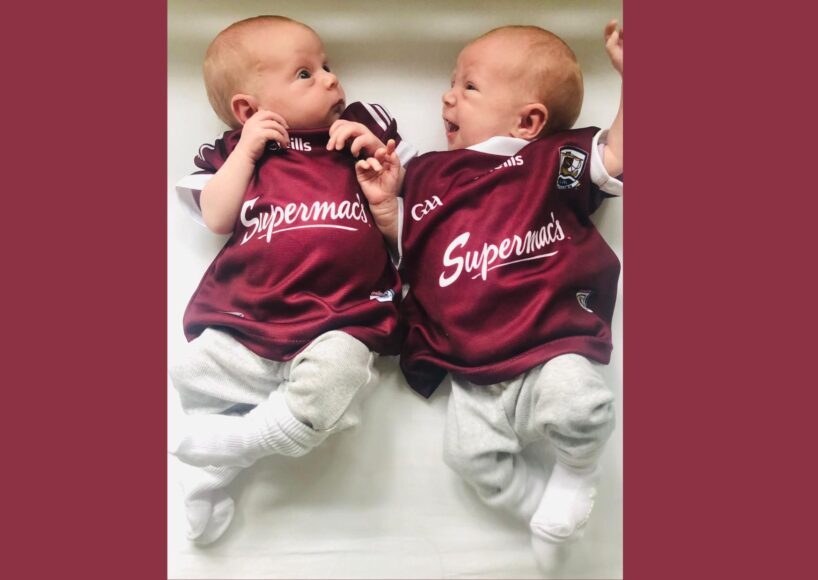
Supermac’s to give a First Galway Jersey to babies born on Connacht and Leinster final days
Supermac’s has decided to share the joy with the newest generation of Galway GAA supporters...

School in Lettermore offers family the opportunity to relocate to Connemara
A school in Lettermore is offering a family the opportunity to relocate to Connemara, The family ...

Galway sees 16 percent drop in marriages in 2023
The number of couples getting married in Galway city and county has dropped by 16 percent. In 202...
Sign Up To get Weekly Sports UPDATES




